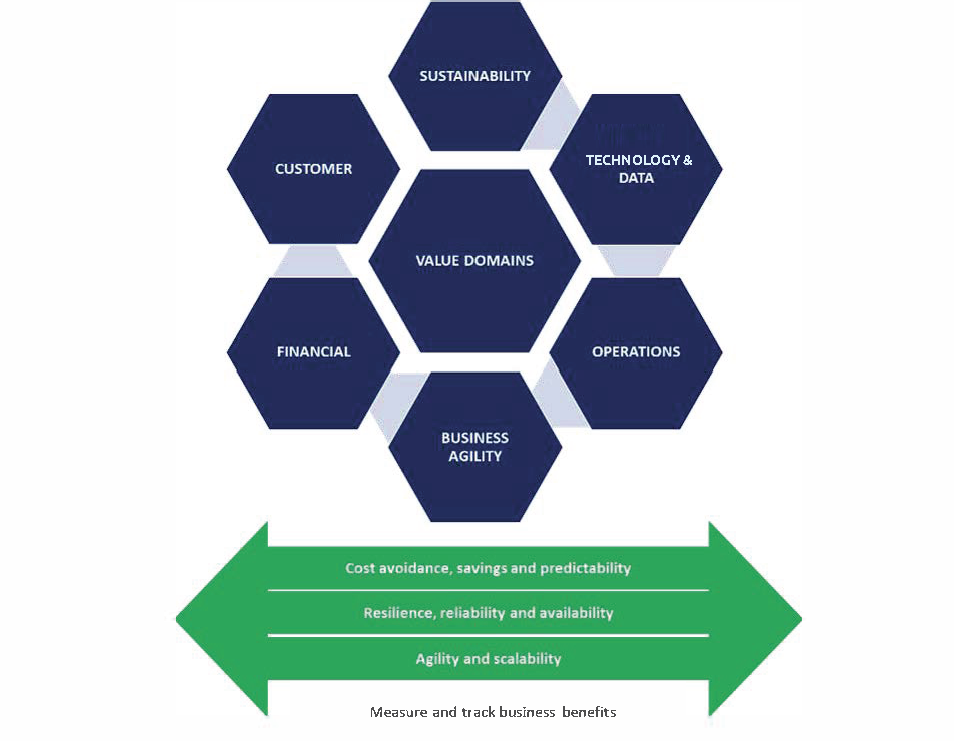Is there more to FinOps than cost reduction for financial services organizations? Our FinOps experts share their perspectives from their firsthand experience.
In recent years, the financial services sector has seen an increase in the pace of digitization. This is a reaction to the demands of the omnichannel customer and the need to compete with FinTech challengers whilst maintaining a cost discipline. Cloud transformation has been a key pillar of digitization for many of these organizations, leading to a mix of hybrid and multi-cloud environments.
Throughout the past few years, increased cost consciousness amongst financial services companies and a lower appetite for risk have meant that organizations are reducing their technology investments and reprioritizing their technology portfolio. It is in this climate that the cost of cloud computing has taken a number of organizations by surprise. As a result, many CIOs, COOs, and CFOs are now turning to FinOps to help reduce the cost of their cloud spending. A recent survey indicated 31% of organizations have a cloud spend over $12 million per annum.[1] FinOps is an operational framework as well as a shift in both culture and mindset, enabling organizations to maximize the value of cloud investments.[2] However, when FinOps is not approached strategically, it fails to deliver sustainable cost and business benefits that CXOs need now more than ever. In this blog, our Capgemini Cloud Advisory and FinOps experts share some lessons learned from their experience with FinOps implementation and share practical solutions for FS CIOs, COOs, and CFOs to consider in their FinOps transformation journey.
What is the business case for FinOps?
Ewan MacLeod, who has been part of several FinOps setups with financial services clients, describes how enterprises often start their journey to cloud computing by assuming that replicating their IT environment in the cloud will result in cost savings.
“Most organizations will overspend on cloud solutions if they do not adopt the right FinOps thinking right from the start. Early adoption is key to the business sustainability of a cloud-based organization.”
Vikram Rajan, VP at Capgemini for Cloud Advisory Services for financial services organizations, agrees:
“Even if an organization does not have a significant cloud spend today, they should establish the FinOps thinking early on. This is to ensure that teams are proactively making cost-conscious decisions and do need to go into fire-fighting mode against wasted cloud spend.”
Our experts unanimously challenge the myth that FinOps is mainly utilized to achieve cost reductions.
FinOps enables an organization to answer two key questions:
Elaborating on the above $10 per customer example, Ewan believes the benefits of FinOps for onboarding are self-evident:
“When you can onboard 1,000 customers quicker due to being on the cloud, you can trace the value of a $10,000 spend and justify the cost.”
FinOps thereby facilitates greater flexibility and agility for investments in cloud computing. It enables organizations to think in terms of how to be flexible over how they spend, how and when they should shut resources down, how long they need an environment for, and what the working hours for that environment should be.
In Vikram’s experience, FinOps can prove pivotal for high-value product lines:
“Where organizations have products delivering value in hundreds of millions of dollars, they are looking to improve the accuracy of forecasts and predictability of spends to manage their platform/products’ scalability.”
Lokesh Sah, a Cloud Advisory specialist at Capgemini, is also quick to point out that FinOps insights can also enable organizations to develop operational improvements, such as developing a cloud data archiving policy to manage data storage costs, which then helps with cost avoidance and improves data efficiencies.
Our experts emphasize that the business case for FinOps programs appears to be straightforward:
‘FinOps pays for itself by accelerating the business benefits, such as improved cost management, value maximization, agility, and scalability.’

Is it too late to adopt FinOps if your organization has already started its cloud transformation without it?
In a perfect world, organizations would have incorporated FinOps at the start of their cloud transformation journey, but Ewan has good news for those organizations who didn’t:
“It’s never too late. It’s like tackling your credit card spending. From the point at which you start auditing your spending, you can identify the overspending and savings and redirect them to a holiday or a car purchase or back to your cashflows. In the case of FinOps, I would say the sooner an organization adopts it in the right way, the better, but it’s never too late.”
“Capgemini partners with companies to transform and manage their business by unlocking the value of technology.
As a leading strategic partner to companies around the world, we have leveraged technology to enable business transformation for more than 50 years. We address the entire breadth of business needs, from strategy and design to managing operations. To do this, we draw on deep industry expertise and a command of the fast-evolving fields of cloud, data artificial intelligence, connectivity, software, digital engineering, and platforms.”
Please visit the firm link to site


